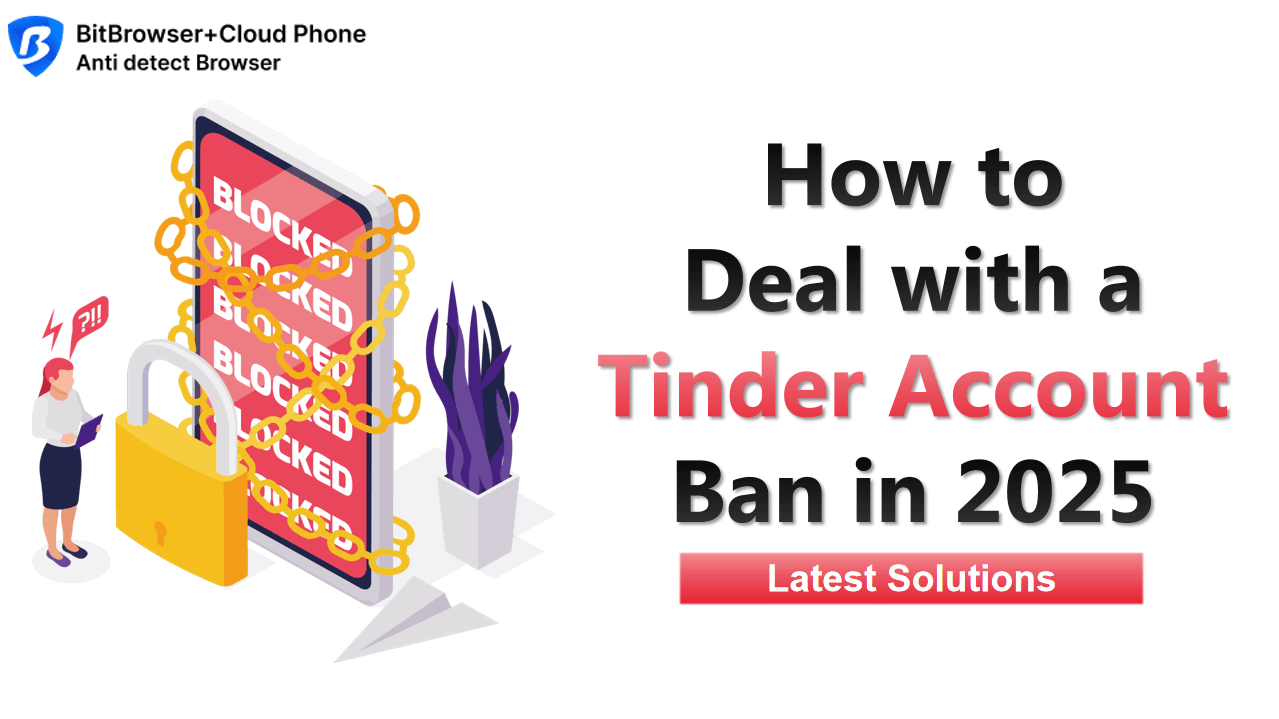
Hot Picks
How to run Facebook ads in 2025? Ideas

Hot Picks
How to promote on Amazon? Sharing various promotion methods

Hot Picks
Choose BitBrowser for fingerprint browsers, and look for the only official website: bitbrowser.cn
The virtual browser prevents the association from being bloc
Time: 2023-05-23 18:41 Click:

For cross-border sellers, the deepest feeling of Amazon account association is that they are upset and hard to guard against. The Amazon platform is also troubled in managing multiple accounts, testing sellers' registration and operational data, of course, to provide buyers with a better shopping experience.
However, for Amazon sellers, in such a highly competitive trading environment, operating multiple accounts will provide more opportunities for your products to be displayed.
When multiple accounts are associated, there will be some impact. First of all, when accounts on the same site are linked, the platform will force merchants to choose which store account to keep, while other stores will be closed and suspended.
The second is more serious. If there are accounts that have been suspended among the linked accounts, all accounts will be suspended.
In the past few years, Amazon, eBay, Wish and other cross-border e-commerce platforms have intelligentized and centralized the multi-account operation review method, which has left many sellers at a loss.
However, if you know the reason for account linking, you can effectively prevent account linking. Today, I will explain in detail why cross-border e-commerce accounts are linked and how to prevent them from being linked.
Why are cross-border e-commerce accounts linked?
There are many reasons why accounts are linked, here are some of the most common reasons:
First of all, the same store registration information may lead to association.
We all know that when registering a cross-border e-commerce account, the platform will ask for information such as company name, personal name, credit card, phone number, and payment account number. However, please note that if you register multiple accounts, there is a high chance that these accounts will be linked if they have the same information.
The second type is related due to high product similarity.
The Amazon cross-border e-commerce platform will check the similarity of products. If the similarity of products in multiple stores reaches a certain percentage, the platform will also determine that they are operated by the same user. Therefore, even for the same product, different stores should have different pictures, titles and descriptions, so don't be lazy.
The third and most important point is whether the network environment is independent or not will affect whether the stores are connected.
If the seller's computer, network cable IP, and browser fingerprint are logged in with the same account, the cross-border e-commerce platform will automatically collect the computer MAC address, router MAC, browser fingerprint, cookie, and network IP. Therefore, when operating multiple accounts, it is necessary to ensure that the network environment of each account is clean.
How to prevent association? How about Bit Virtual Browser?
The best way to prevent association. I believe many merchants have their own familiar handling methods for the first two points. The solution to the third point of environmental isolation is a point that many businesses will struggle with at present.
Isolate the physical environment and encourage merchants to try to use BitVirtual Browser.
Bit Virtual Browser is a multi-account management tool dedicated to cross-border e-commerce. It provides a completely isolated, clean and private multi-account and multi-person fingerprint browser environment for online stores and marketing operators.

 Multi-Account Management
Multi-Account Management Prevent Account Association
Prevent Account Association Multi-Employee Management
Multi-Employee Management



